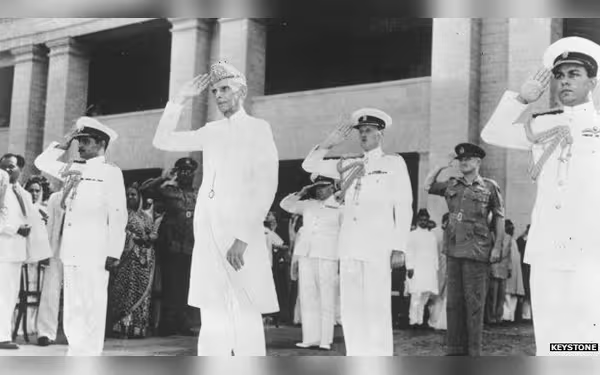Sunday, June 30, 2024 06:46 PM
Mohammed Ali Jinnah's Secular Vision for Pakistan Revealed
- Jinnah advocated for a liberal democratic Muslim state, not an Islamic theocracy.
- He promoted inclusivity by altering official oaths to accommodate atheists.
- Jinnah's progressive views on Islam rejected outdated practices like Purdah.
 Image Credits: BBC
Image Credits: BBCLearn about Mohammed Ali Jinnah's true aspirations for Pakistan, rooted in secularism, democracy, and inclusivity, challenging misconceptions about his stance on Islam.
Fake news and disinformation have long plagued discussions surrounding Pakistan's founding father, Mohammed Ali Jinnah. Despite attempts to portray him as an advocate for an Islamic state, historical evidence paints a different picture.
Jinnah was resolute in his vision for Pakistan as a liberal democratic Muslim state, rejecting the notion of a theocracy based on Quran and Sunnah. He even made changes to official oaths to ensure inclusivity, dropping references to God and altering the wording to accommodate atheists.
Post-1970s, efforts to fit Jinnah into a narrow Islamist ideology have led to the creation of myths, such as claims that he sought guidance on Islamisation from figures like Hassan Al Banna and promised Sharia implementation to religious leaders. However, primary source evidence refutes these assertions.
Jinnah's progressive views on Islam, including his rejection of outdated practices like Purdah, underscore his commitment to a modernist interpretation of the religion. His drafting of a constitution inspired by the French model further exemplifies his vision for a secular, democratic Pakistan.
In light of these historical facts, it becomes evident that Jinnah's true aspirations for Pakistan were rooted in secularism, democracy, and inclusivity, challenging the misconceptions perpetuated by certain factions.













